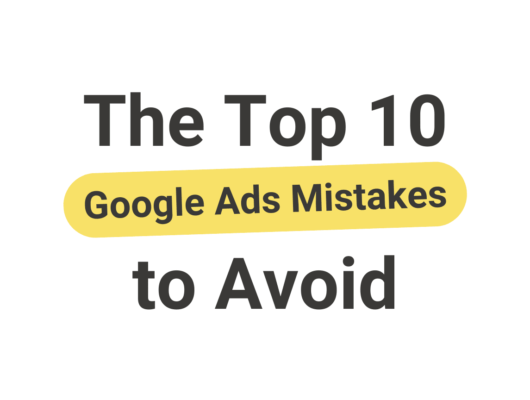Introduction: The Rise of AI in Content Creation
AI Content Writers : Content is king—but in today’s digital world, the king is under pressure. Businesses, bloggers, marketers, and media platforms are all racing to produce more content, faster than ever before. The demand for high-quality blogs, emails, social posts, product descriptions, and ad copy has exploded. But there’s a problem: time and human resources are limited.

Enter AI content writers—smart algorithms trained to write like humans. In just the last few years, artificial intelligence has evolved from a buzzword into a practical tool that’s reshaping how we create content. Whether it’s writing a 2,000-word blog post, crafting engaging headlines, or generating product descriptions in bulk, AI is making it all faster, more efficient, and surprisingly creative.
What was once the job of a team of writers can now be initiated with a simple prompt. From startups to global brands, organizations are leveraging AI to stay competitive, save time, and scale their content strategy.
In this article, we’ll explore how AI content writers work, the benefits and limitations, use cases across industries, and how you can use them to boost your content game.
What is an AI Content Writer?
An AI content writer is a software program fueled by artificial intelligence planned to create composed content naturally. Utilizing progressed machine learning models, these tools understand language designs and can make human-like content based on the enlightening or “prompts” you provide.

Think of it as a virtual composing collaborator that can create everything from blog posts and item depictions to social media captions and emails—all in a matter of seconds or minutes.
At the heart of most AI substance writers are models like GPT (Generative Pre-trained Transformer), which have been prepared on endless amounts of content from books, websites, and articles. This training makes a difference the AI understand context, language structure, tone, and fashion, permitting it to compose smoothly and coherently.
Popular AI content composing tools include ChatGPT, Jasper, Copy.ai, and Writesonic. These stages let clients input a few keywords, themes, or indeed full sentences, and at that point create inventive, discernable, and important content automatically.
In brief, an AI content author can significantly speed up the composing handle, offer assistance overcome writer’s block, and help in scaling content creation—all whereas maintaining quality and pertinence.
Benefits of Using AI Content Writers
AI content journalists are changing the content creation scene by advertising unmatched speed, adaptability, and support. Here are some of the key benefits businesses and individuals are experiencing:

1. Save Time and Boost Productivity
Creating quality content manually can take hours—even days. With an AI content writer, you can generate blog posts, social media upgrades, product descriptions, and email campaigns in minutes. This liberates up important time for strategizing, altering, or focusing on other high-priority tasks.
2. Cost-Effective Content Creation
Hiring full-time writers or outsourcing to offices can be costly. AI tools offer an reasonable elective, particularly for new companies and little businesses. Many stages come with adaptable estimating plans, permitting you to make content at scale without breaking the bank.
3. Scale Your Content Efforts
Need 50 item descriptions or 10 blog thoughts in a day? AI can handle it. These tools make it simple to scale content output without expanding headcount, making them perfect for developing businesses and active marketing teams.
4. Built-in SEO Features
Many AI writers come coordinates with SEO-friendly capabilities. They can recommend keywords, optimize headings, and guarantee content is organized for better search engine perceivability. This makes it less demanding to make content that not only reads well but moreover positions well.
5. Multilingual Support
Want to extend universally? Many AI tools support numerous languages, making a difference you reach a broader audience without needing numerous interpreters or native writers.
6. Overcome Writer’s Block
Even the best writers get stuck sometimes. AI content writers can spark imagination, create subject thoughts, and give content outlines—helping you get begun quicker and more certainly.
Limitations of AI Writers (And How to Overcome Them)
Whereas AI content writers offer incredible focal points, they’re not without impediments. Understanding these downsides is basic to utilizing them successfully, and knowing how to overcome them makes all the difference.
1. Lack of Human Emotion and Creativity
AI can mimic tone, but it doesn’t really understand human feeling or social subtlety. Its writing can some of the time feel automated or as well non specific, particularly when narrating or influential composing is required.
How to overcome it:
Use AI for the to begin with draft or structure, at that point infuse your individual voice, encounter, and feeling amid altering. Think of AI as your partner, not your replacement.
2. Occasional Inaccuracies
AI produces content based on designs in information, not real-time information. It may give obsolete or incorrect data, particularly on complex or delicate topics.
How to overcome it:
Always fact-check AI-generated substance. Cross-reference measurements, cites, and specialized subtle elements with dependable sources some time recently publishing.
3. Tedious or Bland Output
If you allow dubious or dreary prompts, the AI may deliver comparable substance over numerous pieces. This can harmed creativity and peruser engagement.
How to overcome it:
Be particular with your prompts. Characterize your gathering of people, tone, watchwords, and substance objectives. The more point by point your input, the superior the output.
4. No Basic Considering or Genuine Insight
AI can summarize data, but it can’t give unique thought, firsthand encounter, or profound analysis—qualities that frequently characterize high-quality content.
How to overcome it:
Blend AI-generated content with your possess experiences, cases, or case considers to make genuinely important and unique content.
5. Ethical and Plagiarism Concerns
AI tools may inadvertently replicate expressions or sentences that closely take after existing content, raising concerns around originality and plagiarism.
How to overcome it:
Use plagiarism checkers (like Grammarly or Copyscape) some time recently distributing. Too, customize and rework areas as required to guarantee your content is unique.
Use Cases Across Industries
AI content writers are not just tools for bloggers or marketers—they’re changing how content is made across a wide range of businesses. From e-commerce to healthcare, here’s how diverse segments are leveraging AI to streamline and scale their content efforts:
1. E-commerce
AI tools offer assistance online retailers produce thousands of product descriptions, category pages, and promotional emails in a reliable and adaptable way.
Examples:
Writing SEO-optimized item descriptions.
Generating special banners and advertisement copy.
Crafting deserted cart email sequences.
2. Digital Marketing Agencies
Agencies utilize AI writers to speed up content creation for blogs, landing pages, and social media—freeing up human writers to focus on technique and creativity.
Examples:
Generating blog outlines and first drafts.
Creating Google and Facebook advertisement copy.
Writing email marketing campaigns.
3. Healthcare
While content in this field requires exactness and affectability, AI can help with organizing instructive materials, FAQs, and arrangement reminders.
Examples:
Writing understanding instruction articles.
Summarizing restorative subjects in basic terms.
Automating follow-up messages or alerts.
4. Finance & Fintech
AI makes a difference budgetary teach rearrange complex points for clients whereas keeping up polished skill and clarity.
Examples:
Writing FAQs and explainers around money related products.
Creating instructive blogs on subjects like credit, credits, or investments.
Drafting chatbot reactions for customer service.
5. Instruction & e-Learning
Online learning stages use AI to make lesson rundowns, course descriptions, and understudy criticism messages.
Examples:
Generating lesson diagrams and study materials.
Writing course descriptions for websites.
Creating e-mail arrangements for understudy engagement.
6. Media & Entertainment
Content-driven businesses advantage from AI’s capacity to churn out scripts, abstracts, and social media content rapidly and creatively.
Examples:
Drafting YouTube video scripts or podcast appear notes.
Writing outlines for articles or interviews.
Generating thoughts for excitement blogs and news pieces.
How to Use an AI Writer Effectively
Utilizing an AI content author is more than fair writing a incite and hitting “produce.” To get the best results, you require to direct the device deliberately. Here’s how to make the most of an AI writer:

1. Start with Clear and Specific Prompts
The more point by point your prompt, the better the yield. Tell the AI what you need, who it’s for, the tone, and the purpose.
Example:
Instead of saying, “Write about digital marketing.”
Try: “Write a 500-word blog post on digital marketing patterns in 2025, utilizing a inviting tone for small trade owners.”
2. Characterize Your Content Structure
AI works well when you guide it with structure. Diagram the headers or bullet points to begin with, then inquire the AI to grow each section.
Tip: Utilize devices that support content sketching out, or inquire the AI to create an outline some time recently composing the full piece.
3. Treat the First Draft as a Beginning Point
AI-generated content frequently needs refining. Don’t distribute crude AI output—edit it for tone, exactness, and readability.
Pro tip: Use AI to handle the “boring to begin with draft,” at that point implant your identity, stories, or information to make it stand out.
4. Combine with SEO Tools
If your goal is search engine traffic, combine your AI essayist with SEO tools like SurferSEO, Frase, or SEMrush. These devices offer assistance optimize content for the right keywords, structure, and readability.
5. Iterate and Experiment
Don’t expect perfection on the to begin with attempt. Try with incite expressing, tone settings, and diverse tools until you get the fashion and quality you need.
6. Customize for Your Brand Voice
Many AI stages let you “train” or design tone and style. Utilize this to adjust the AI with your brand’s personality—whether it’s casual, professional, witty, or formal.
7. Blend Human + AI Strengths
Let AI handle speed and structure, whereas you include understanding, emotion, and realness. This hybrid approach produces the most engaging and reliable content.
Top AI Content Writing Tools in 2025
The AI content writing scene has advanced quickly, and in 2025, there are a few capable devices accessible, each advertising special highlights to meet diverse content needs. Here’s a list of the top-performing AI content writers this year:

1. ChatGPT (by OpenAI)
Best for: Flexible writing, thought generation, long-form content
Powered by GPT-4, ChatGPT is one of the most broadly utilized AI devices. It can compose blog posts, emails, advertisements, social media captions, and more. With highlights like custom informational and memory (for premium clients), it can tailor content to your unique fashion and needs.
Key Features:
- Natural and coherent writing
- Customizable tone and structure
- Great for brainstorming and drafts
2. Jasper AI
Best for: Marketing content, branded voice, team collaboration
Jasper is custom-made for businesses that need reliable, on-brand marketing content. It coordinating with devices like SurferSEO and Grammarly, and underpins brand voice guidelines.
Key Features:
- Brand voice memory
- 50+ layouts for advertisements, blogs, emails
- Collaboration and workflows for teams
3. Copy.ai
Best for: Speedy duplicate, social media, advertisement writing
Copy.ai is a user-friendly stage perfect for creating short-form content like social posts, item descriptions, and e-mail subject lines. It’s particularly prevalent with business visionaries and little businesses.
Key Features:
- Fast content generation
- Templates for all types of copy
- Multilingual support
4. Writesonic
Best for: E-commerce and SEO-optimized content
Writesonic offers AI-generated content with a focus on SEO, making it a solid choice for content marketers and online stores. It moreover offers chatbot usefulness and landing page builders.
Key Features:
- SEO mode for blog writing
- Product description generator
- AI chatbot and landing page builder
5. Rytr
Best for: Budget-conscious clients, beginners
Rytr is an reasonable, easy-to-use tool that bolsters over 30 languages and a wide extend of composing styles. It’s extraordinary for apprentices or those looking for fast content without a soak learning curve.
Key Features:
- Clean interface with minimal setup
- Over 40 content types
- Affordable plans
6. INK Editor
Best for: SEO-focused content creation
INK combines AI writing with strong SEO optimization. It’s idealize for writers who need to guarantee their content positions well on Google.
Key Features:
- Real-time SEO score
- AI writing assistant
- Grammar and lucidness checks
7. Sudowrite
Best for: Creative writers and storytellers
While most tools focus on marketing or blogging, Sudowrite is planned for fiction writers and novelists. It makes a difference create characters, plot turns, and inventive narratives.
Key Features:
- Story-building assistance
- Descriptive composing enhancement
- Creative conceptualizing tools
AI vs. Human Writers: Who Wins?
The debate between AI and human writers is heating up—and for great reason. As AI becomes more advanced, many are inquiring: Will machines replace human inventiveness? Or is there still a put for the human touch? The reply isn’t dark and white. Let’s break it down:

What AI Writers Do Well:
- Speed & Efficiency: AI can create thousands of words in minutes—ideal for bulk content like item descriptions, SEO articles, and e-mail templates.
- Consistency: AI maintains a uniform tone and fashion over huge volumes of content.
- Idea Generation: It’s extraordinary for overcoming writer’s block, making diagrams, and starting new concepts.
- Cost Savings: For businesses with high content requests, AI tools can essentially decrease costs.
What Human Writers Do Better:
- Creativity & Feeling: AI can mirror tone, but it needs veritable feeling, narrating, and social nuance.
- Original Insights: Humans draw from real-life encounters, skill, and intuition—something AI cannot replicate.
- Brand Voice & Strategy: People understand brand values, audience psychology, and how to shape content that really resonates.
- Fact-Checking & Ethics: People can confirm truths, dodge deception, and type in with sympathy and sensitivity.
So, Who Wins?
Neither. The genuine champ is a collaboration between the two.
AI is an extraordinary device, but it works best when guided by human imagination, oversight, and aim. When you combine the speed and structure of AI with the knowledge and realness of a human essayist, the result is content that’s not fair productive, but impactful.
In today’s content-driven world, the most successful makers and brands are not choosing between AI or humans—they’re leveraging the qualities of both.
Should You Hire an AI Content Writer for Your Business?
As content demands develop and competition fixes, businesses are under pressure to create more, speedier, and more brilliant. That’s where AI content writers come in. But is it the right choice for your trade? Let’s take a closer look.
When AI Content Writers Make Sense
You should certainly consider utilizing an AI content writer if:
- You need to create content at scale. Whether it’s blog posts, social media upgrades, item descriptions, or e-mail campaigns, AI can save time and cut down on costs.
- Your group is small or overpowered. AI can act like an additional combine of hands, making a difference your group meet tight due dates or handle bulk projects.
- You need to boost SEO efforts. Many AI tools are optimized for search engines and can offer assistance progress your rankings with keyword-rich, organized content.
- You’re working with a restricted budget. Compared to contracting full-time writers or offices, AI tools are much more affordable.
When You May Still Need a Human Touch
Despite the benefits, AI may not completely replace human writers if:
You require high-impact narrating. Passionate, powerful, or brand-driven accounts still require human creativity.
You bargain with touchy subjects. Content in healthcare, finance, or law regularly needs master review and fact-checking.
Your brand voice is highly interesting. If your brand tone is specialty, witty, or flighty, AI might require overwhelming altering to match it.
A Smart Approach: Combine AI + Human Talent
Rather than choosing one over the other, consider using AI as a tool to support your content group. Let the AI handle to begin with drafts, diagrams, and tedious assignments, whereas your human writers refine the message, tone, and creativity.
Final Verdict
Hiring an AI content writer isn’t about replacing humans—it’s about enhancing your workflow.
If your goal is to make more content, speedier, and remain competitive in a content-heavy world, AI can be a capable and cost-effective partner. Just remember: the best results come when you combine innovation with human understanding.
Conclusion: Embrace the Future of Content
The rise of AI content writers marks a significant shift in how we create and consume information. From speeding up content production to offering on-demand writing assistance, AI is no longer a futuristic concept—it’s a practical, powerful tool available to businesses of all sizes today.
But here’s the key takeaway: AI is not here to replace human creativity—it’s here to enhance it. The most impactful content strategies moving forward will be built on a hybrid approach, where machines handle the heavy lifting and humans infuse meaning, emotion, and strategy.
Whether you’re a solo entrepreneur, a growing startup, or an established brand, embracing AI content writing tools can help you stay competitive, efficient, and innovative.
So, don’t fear the change—embrace the future of content. Start experimenting with AI today, and discover how it can elevate your content game to new heights.







